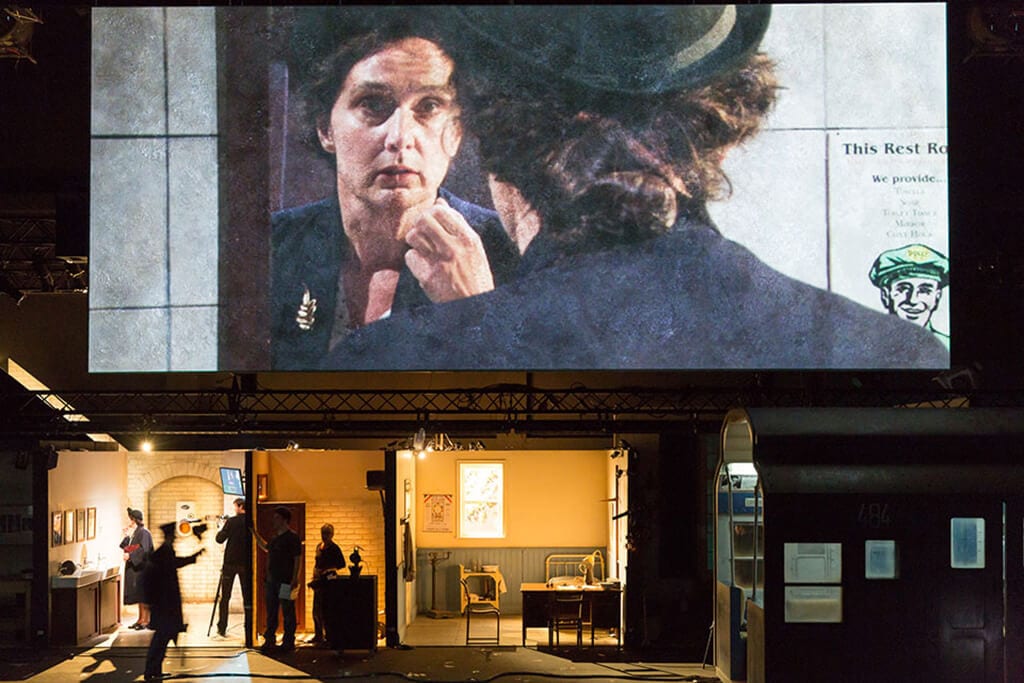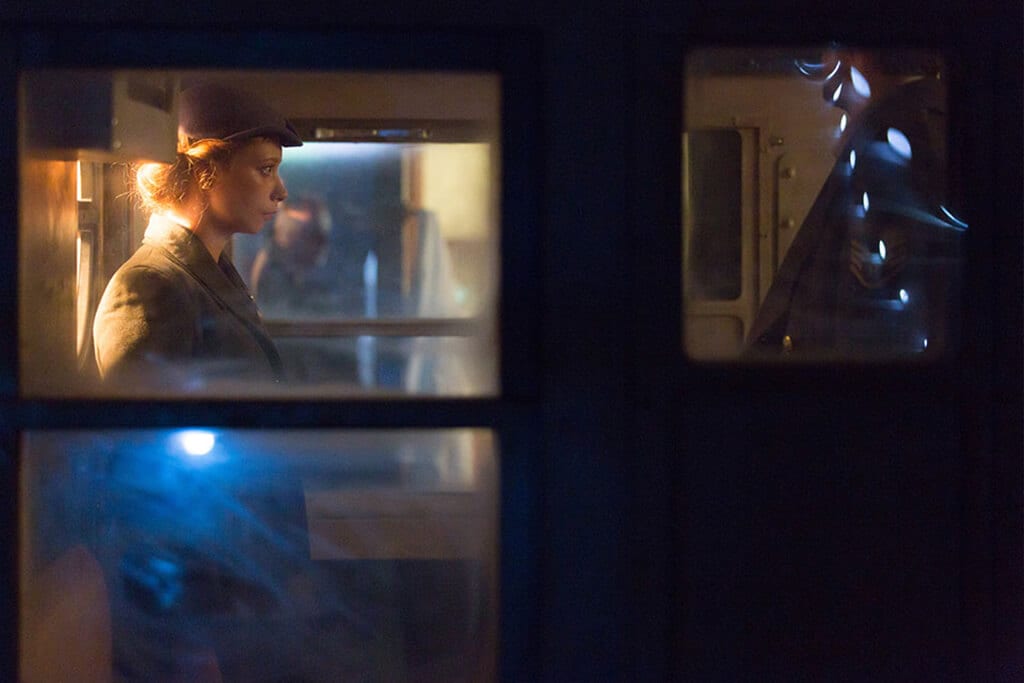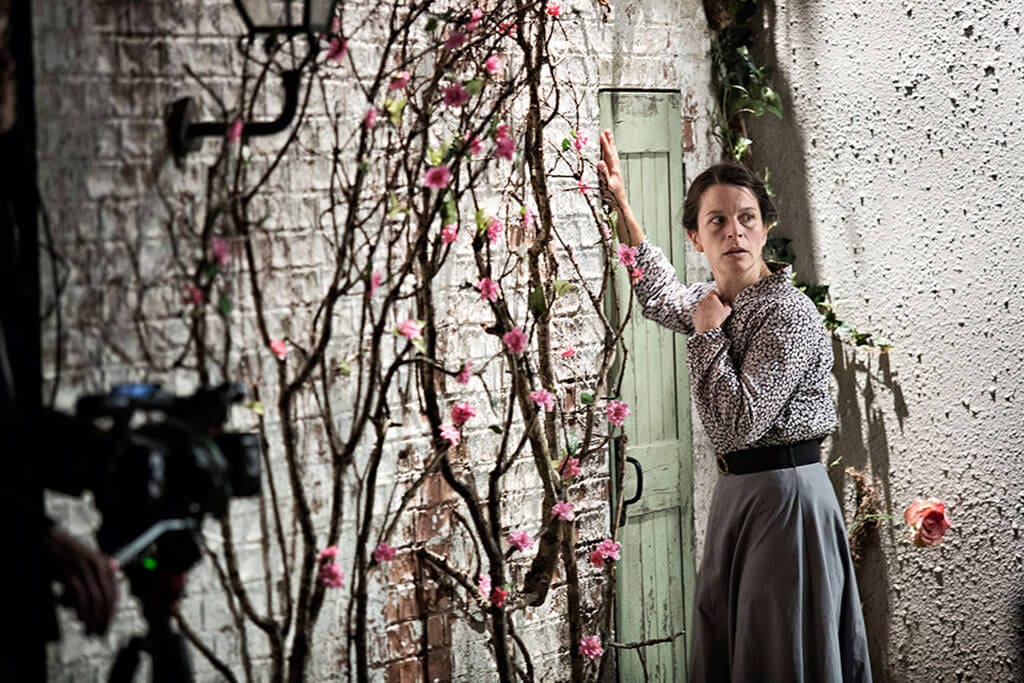Forbidden Zone tells the real life story of Clara Immerwahr, the wife of the Fritz Haber (widely regarded as the father of modern chemical warfare) as she uncovers the true nature of her husband’s experiments with chlorine gas. This narrative runs parallel to another, set in the future, involving Clara’s granddaughter Claire, in a futile struggle to develop an antidote to poison gas.
Katie Mitchell’s collaboration with the Schaubühne’s ensemble involves a characteristic fusing of film and performance, experimental narrative strategies, and a design (by Lizzie Clachan) that is operatic in its scale and ambition.
Effectively we are onlookers as a film crew captures the key moments in the lives of these two women: we watch both film and film set concurrently. As with the expanded cinema experiments of the Filmaktion group and other radical multimedia practitioners in the 70s and 80s – the process exposes the mechanics behind the illusion, encouraging (in a Brechtian fashion) the audience to recognise the constructed nature of the form and to interrogate its content critically.
The theme is women and war. Commentaries to the play’s action – taken from Virginia Woolf, Hannah Arendt and Mary Borden – underscore what we see on stage. Everything combines to expose the powerlessness of women in the context of early twentieth century conflict: confronted with the view that chemical warfare is an effective way of shortening the war, little attention is paid to the emphatic humanitarian objection voiced by the play’s female protagonists, or their warnings that it will have devastating long term ramifications.
It’s a beautifully mournful piece of work. In its repetitions and bare constructedness it captures the impotence and the limited confines of women living in times of war. Given the continuing popularity of chemical weapons (as Assad has recently proven) it is a vital chronicle of a historical turning point, and an attempt at intervention that sadly did not (and could not) succeed.



